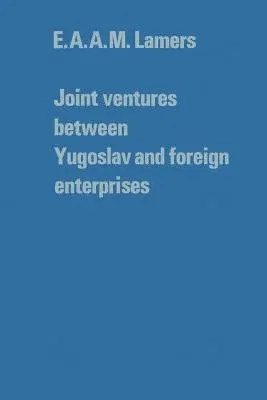E A a M Lamers
(Author)Joint Ventures Between Yugoslav and Foreign Enterprises (Softcover Reprint of the Original 1st 1976)Paperback - Softcover Reprint of the Original 1st 1976, 9 April 2012

Qty
1
Turbo
Ships in 2 - 3 days
In Stock
Free Delivery
Cash on Delivery
15 Days
Free Returns
Secure Checkout
Part of Series
Tilburg Studies in Economics
Print Length
268 pages
Language
English
Publisher
Springer
Date Published
9 Apr 2012
ISBN-10
9401177643
ISBN-13
9789401177641
Description
Product Details
Author:
Book Edition:
Softcover Reprint of the Original 1st 1976
Book Format:
Paperback
Country of Origin:
NL
Date Published:
9 April 2012
Dimensions:
22.86 x
15.24 x
1.45 cm
ISBN-10:
9401177643
ISBN-13:
9789401177641
Language:
English
Location:
Dordrecht
Pages:
268
Publisher:
Series:
Weight:
367.41 gm

